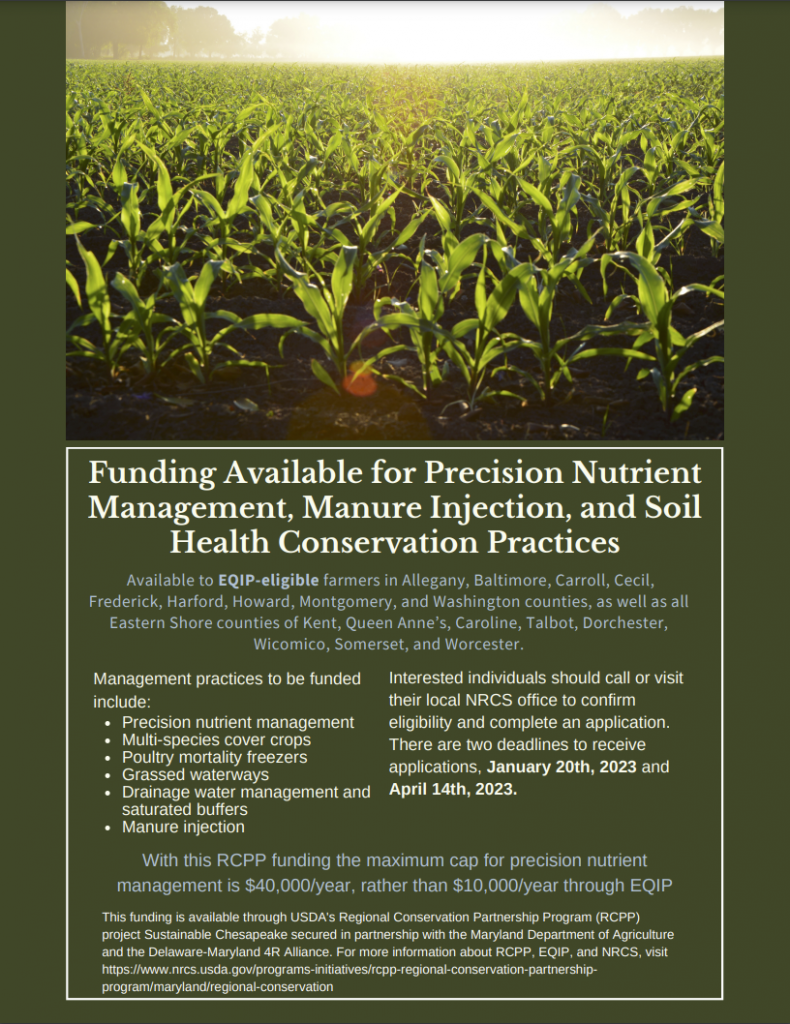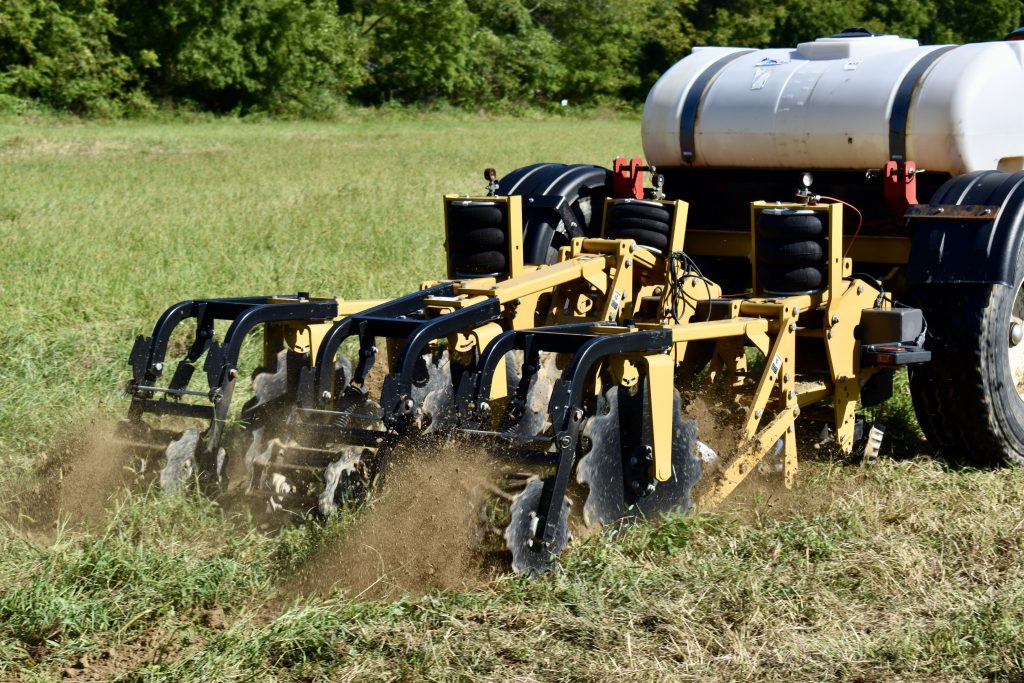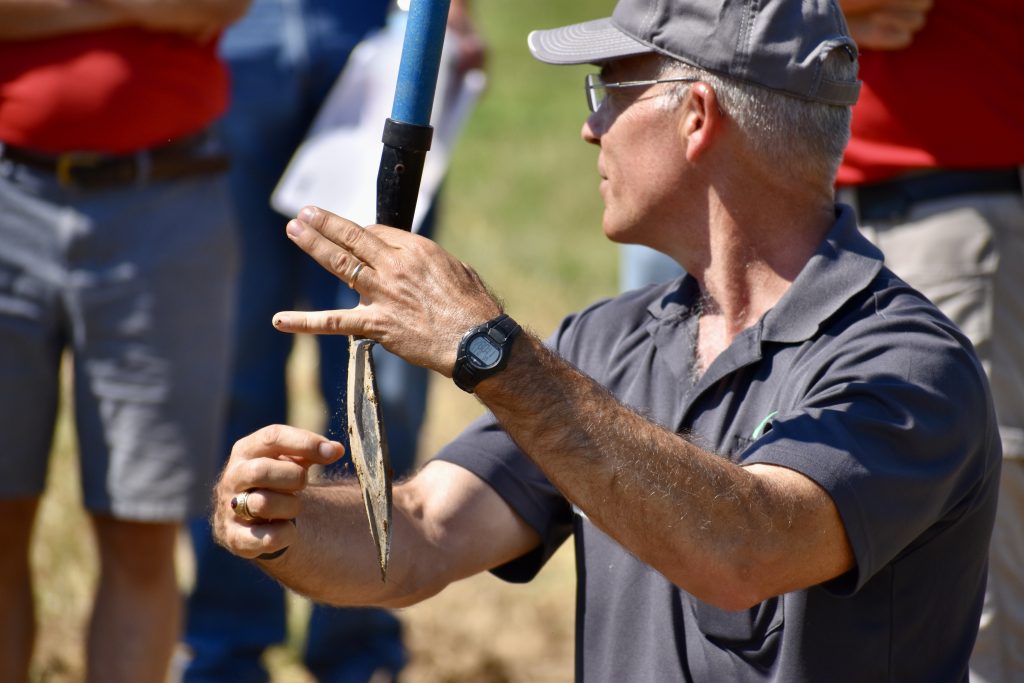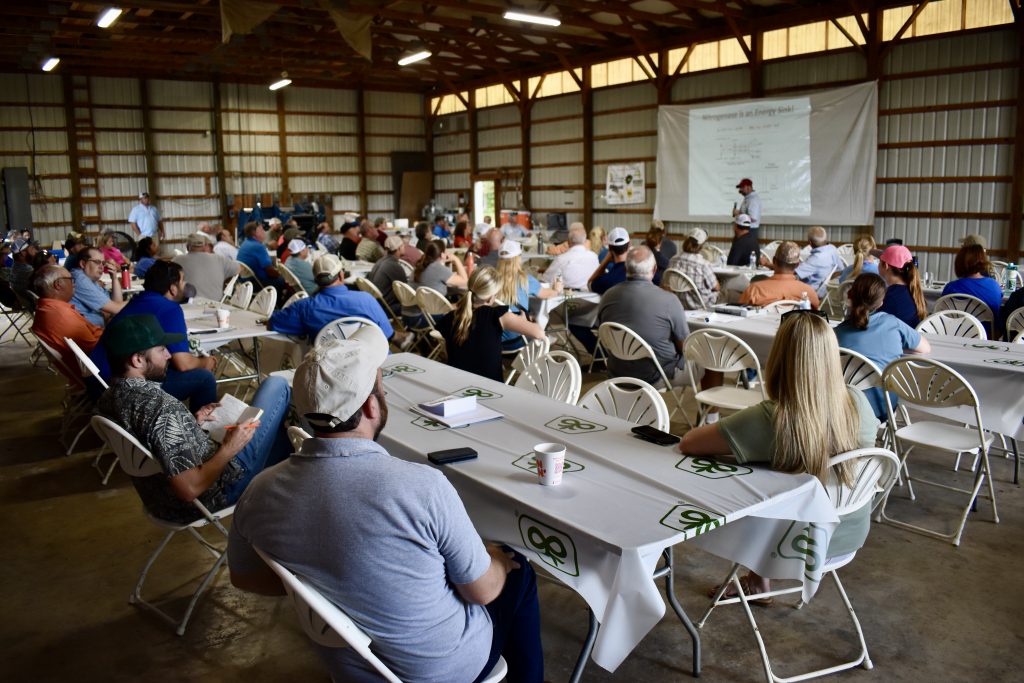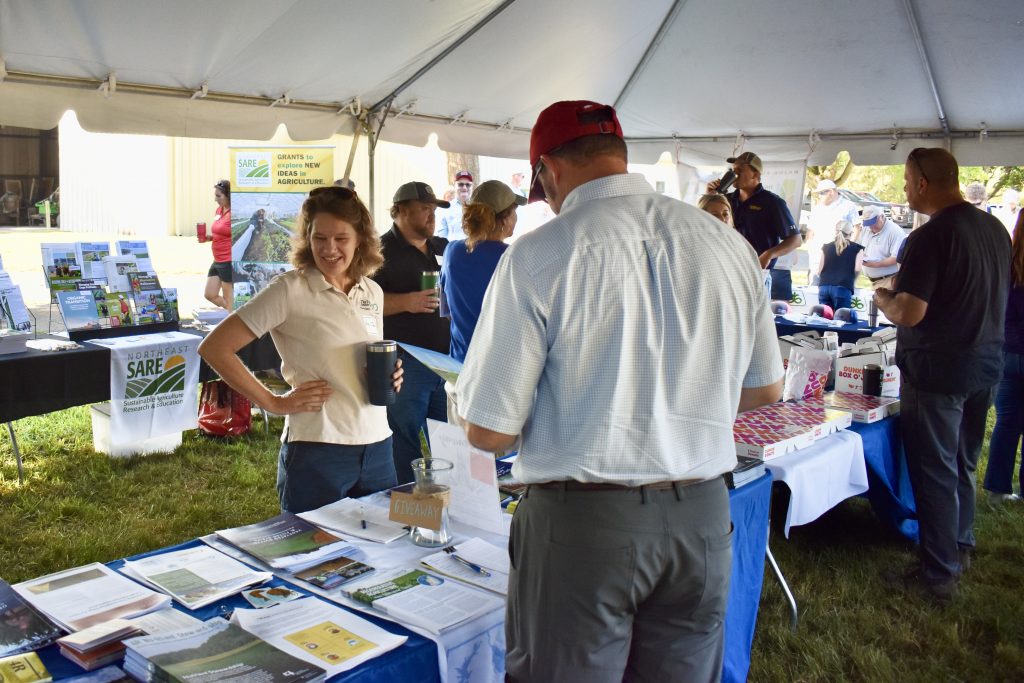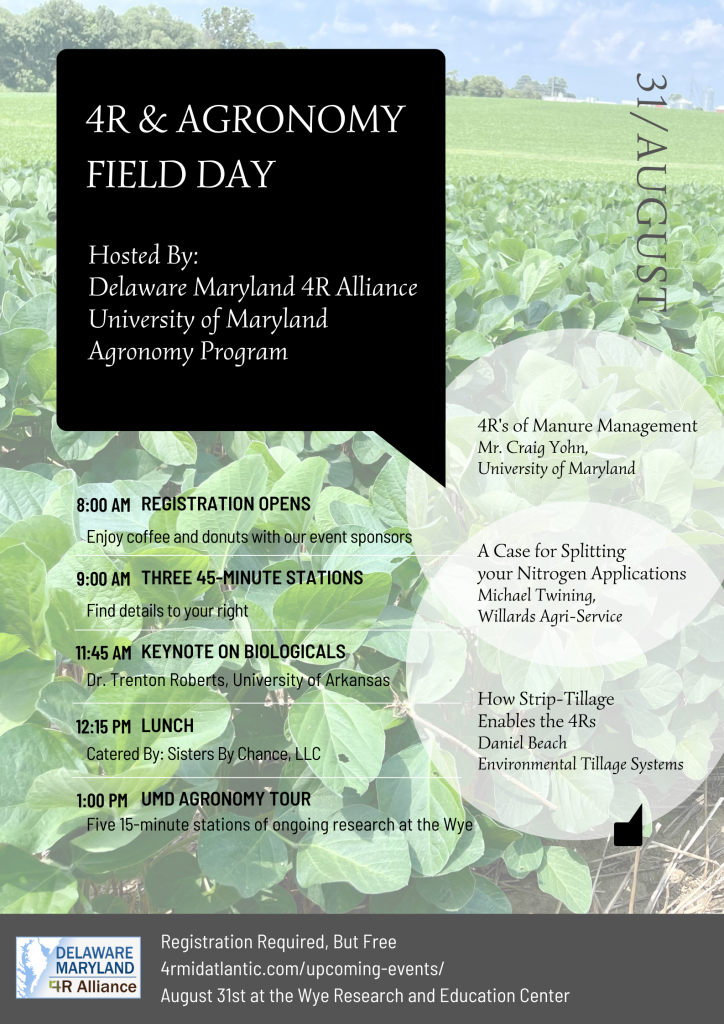Queenstown, Maryland (September 28, 2022) – On August 31st, the Delaware Maryland 4R Alliance partnered with the University of Maryland Agronomy Program for their annual Field Day at the Wye Research and Education Center. Over 140 participated to explore more about 4R practices – applying nutrients from the right source, at the right rate and time, and in the right place.
Demonstrations included the Environmental Tillage System’s Soil Warrior strip-till machine and a Hoobers strip -till machine. Strip-tillage focuses only on the rows where crops will be planted to support the application of variable rate fertilizer, both dry and liquid, in the soil just below where the seed will be placed.
Mr. Craig Yohn with the University of Maryland Extension explained the benefits of the 4R approach to applying manure. He demonstrated how to calibrate a dry poultry litter spreader and explained the value of poultry litter as a viable plant food.
Mike Twining with Willard’s Agri-Service showcased precision placement of nutrients with a liquid sprayer demonstrating multiple nozzles to match the crop needs.
Dr. Trenton Roberts, Associate Professor of Soil Fertility at the University of Arkansas provided a lunchtime talk on his research with Pivot Bio. Dr. Roberts has performed multi-year performance trials with Pivot Bio’s strains of microbes. His results demonstrated that the product can provide nitrogen to corn under certain conditions, and it is generally difficult to predict which conditions in any given year will be ideal for the use of the product.
Lunch was catered by Sisters By Chance in Galena, with delicious chicken, provided by Mountaire Farms. Then attendees enjoyed a wagon tour of UMD agronomic research at the Wye Research and Education Center. Stops covered the performance of crop variety trials presented by Dr. Nicole Fiorellino, the use of fungicides in soybeans with Andy Kness, novel research in deer damage in soybeans presented by Dr. Luke Macaulay, cover crop impact on weed control with Dr. Kurt Vollmer, and current entomology research being performed by Dr. Kelly Hamby.
*Photos were taken by Matthew Kane with The Nature Conservancy.
Thank you to our 2022 event sponsors!
- AgroTech USA
- Chorman Spraying
- Corteva Agriservice
- Crow Insurance Agency
- Fulton Bank
- Harry Hughes Center for Agro-Ecology
- Horizon Farm Credit
- King Crop Insurance
- MARBIDCO
- Mountaire Farms
- Nagel Crop Insurance
- Northeast SARE
- Pivot Bio
- Revere Seed
- Timac
- UniSouth Genetics, Inc.
- Willard Agri-Service
